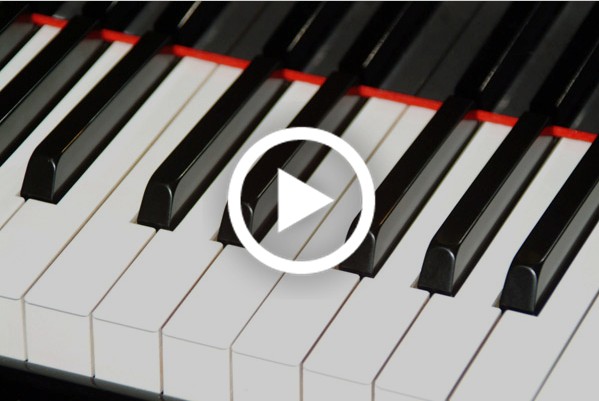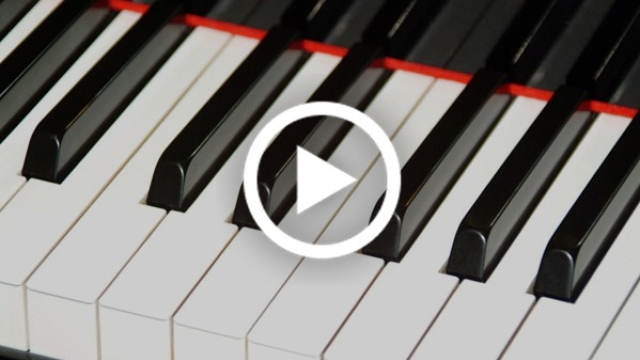Introduction:
Learning to play the piano is a captivating and rewarding journey that opens up a world of melodies and harmonies. As you sit in front of the majestic instrument, you embark on a musical expedition, delving into the intricate art of creating beautiful sounds. With each touch of a key, you unlock the potential to express emotions and convey stories without uttering a single word.
In today’s digital age, innovative technologies have revolutionized the way we learn and interact with our surroundings. The emergence of mixed reality has provided aspiring pianists with an immersive and transformative learning experience. With the integration of virtual and physical elements, the realms of possibility within piano learning have expanded beyond imagination.
Enter the realm of mixed reality piano, a concept that marries the traditional elegance of the instrument with the boundless innovation of technology. Through the use of advanced digital platforms, augmented reality overlays, and interactive tutorials, students are now equipped with a powerful tool that enhances their journey towards mastery. Imagine being able to visualize music theory concepts in real-time as you play, seeing harmonies come to life in vibrant colors, and receiving instant feedback on your technique – all within the comfort of your home.
Piano With Headset
Section 1: The Fundamentals of Piano Learning
In the journey of mastering the piano, understanding the fundamentals is essential. Learning the intricacies of this beautiful instrument not only requires dedication but also a solid foundation. Whether you are a beginner or an experienced player, delving into the world of piano learning can be an enriching and fulfilling experience.
One aspect that has revolutionized piano learning is the emergence of mixed reality technology. This innovative approach combines the physicality of playing the piano with virtual elements, creating a unique and immersive learning experience. By integrating mixed reality into piano practice, learners can now explore new dimensions, visualize musical concepts, and enhance their understanding of complex harmonies.
By embracing mixed reality, students can make significant strides in their piano learning journey. This integration allows for a seamless blend of the traditional approach with the advancements of technology, opening up a world of possibilities. Through interactive simulations and visualizations, learners can gain better insights into finger placement, hand movements, and music theory concepts, propelling their piano skills to a new level of mastery.
In the realm of piano learning, grasping the secrets of harmonies is paramount. With mixed reality piano, learners can dive deep into the world of harmonies and explore their intricacies like never before. By visualizing the relationships between different notes, chords, and scales, learners can develop a heightened sense of musicality and compose melodious pieces that speak to the heart.
Mastering the piano requires patience, dedication, and an unwavering passion for music. With the advent of mixed reality piano, learners can embark on a melodic journey like no other. This technology brings together the artistry of playing the piano with the innovation of mixed reality, creating endless possibilities for learners to unlock their true musical potential.
Section 2: Exploring the Possibilities of Mixed Reality Piano
In recent years, the emergence of mixed reality technology has revolutionized the realm of piano learning. By merging the physical and digital worlds, the mixed reality piano opens up a whole new dimension of possibilities for aspiring pianists. Through this innovative technology, learners can now embark on a melodic journey like never before.
One of the key advantages of the mixed reality piano is its ability to provide an immersive learning experience. By wearing a mixed reality headset, learners are transported into a virtual environment where they can interact with the piano in a highly engaging way. Whether it’s exploring different musical genres or experimenting with various playing techniques, the mixed reality piano allows learners to dive deep into the world of music and discover their true potential.
Furthermore, the integration of mixed reality technology with traditional piano learning methods enhances the effectiveness of practice sessions. With virtual guidance and real-time feedback, learners can receive instant analysis of their playing technique, accuracy, and expression. This personalized feedback not only helps them identify areas for improvement but also encourages them to push their boundaries and strive for excellence.

Overall, the mixed reality piano unveils a harmonious blend of technology and artistry, bringing a sense of wonder and excitement to piano learning. As learners delve into the realm of mixed reality, they are provided with a unique opportunity to unlock the secrets of the piano and embark on a musical journey that is truly transformative. With its immersive experiences and integrated feedback systems, the mixed reality piano paves the way for a future where anyone can master the art of playing this magnificent instrument.
Section 3: Unleashing Harmonious Secrets through Mixed Reality
In today’s ever-evolving digital landscape, the realm of piano learning has been revolutionized by the advent of mixed reality technology. By merging the physicality of the piano with virtual elements, this innovative approach has opened up a whole new dimension of possibilities for aspiring pianists. Through the power of mixed reality, students can now embark on an immersive and captivating journey to unlock the harmonious secrets of the piano.
One of the key advantages of mixed reality piano learning is the ability to visualize musical concepts with remarkable clarity. Through the integration of virtual elements, learners can now see intricate musical structures, such as scales, chords, and progressions, unfold right before their eyes. This visual representation enhances their understanding of music theory, enabling them to grasp complex concepts more easily. With mixed reality, the abstract nature of music becomes tangible, allowing students to explore the inner workings of harmonies and melodies in a whole new way.
Beyond visualizations, mixed reality also fosters a deeper connection between the pianist and their instrument. By overlaying virtual cues and feedback onto the physical piano, learners can receive real-time guidance as they play. This interactive element not only enhances their technical skills but also cultivates a sense of personal expression and creativity. With each note played, the virtual world responds, creating an immersive environment that encourages exploration and experimentation.
Moreover, mixed reality piano learning offers a customizable and adaptive learning experience. Through intelligent algorithms and advanced analytics, the technology can tailor lessons to the individual needs and skill levels of each learner. Whether a beginner or an advanced player, the mixed reality platform can provide personalized challenges and exercises that push students to their full potential. This adaptability ensures that every pianist can embark on a melodic journey that suits their abilities and leads them towards mastery.
In conclusion, the integration of mixed reality into piano learning has unleashed a world of harmonious secrets waiting to be unraveled. By providing visualizations, enhancing connection to the instrument, and offering adaptive learning experiences, this technology has transformed the way we approach and delve into the realm of piano music. It is through the synergy of physical and virtual elements that aspiring pianists can now immerse themselves in an enriched learning journey, truly unlocking the true potential of their musical expression.

